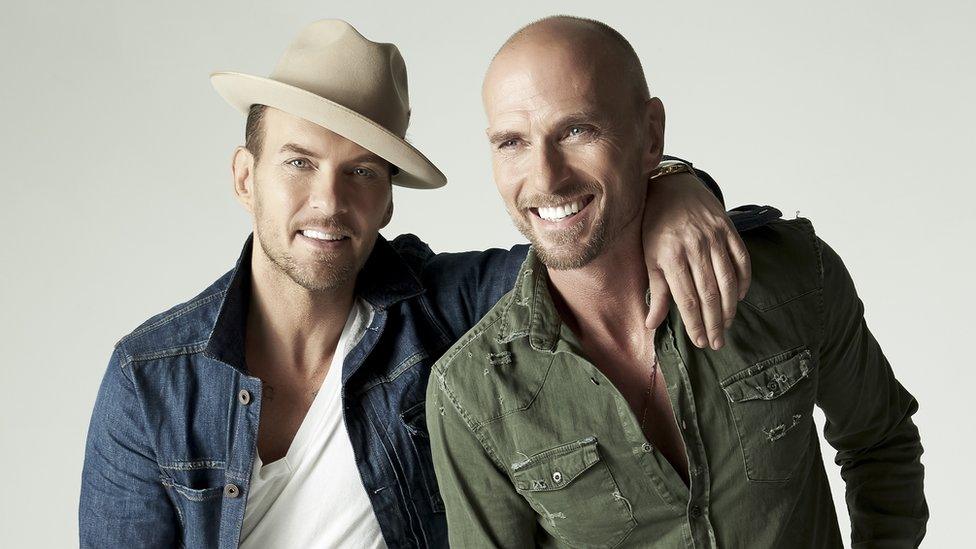Craig Logan 'not interested' in joining Bros reunion
- Published
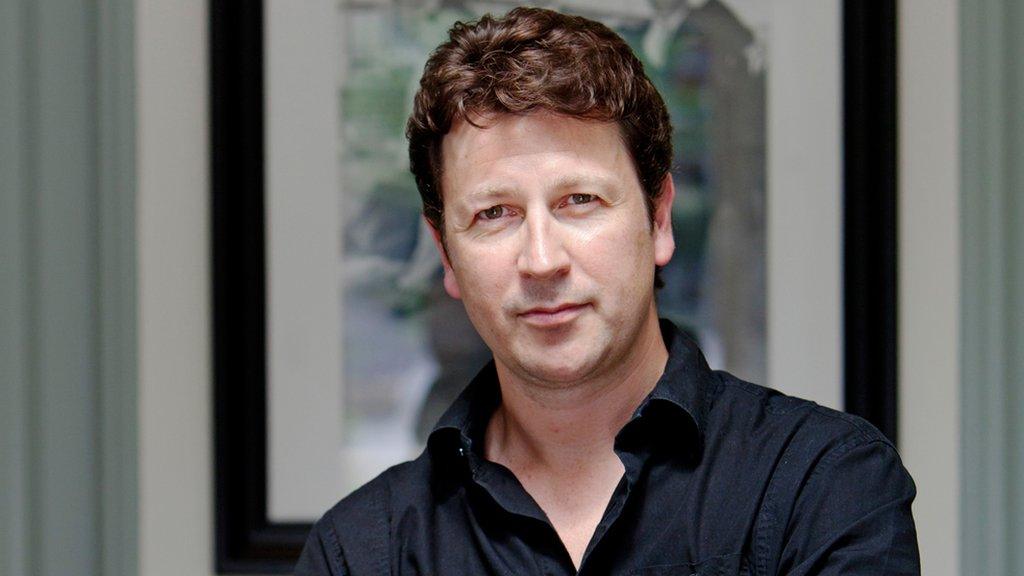
Since leaving Bros, Logan has worked with the likes of Robbie Williams, Tina Turner and Pink
Bassist Craig Logan, who quit Bros at the height of their fame, has broken his silence on the band's reunion.
"It's not something I've ever wanted," he told the BBC, confirming he will not be taking part in next year's UK tour.
"I'm going to save the public from me running around with the bass, because that just wouldn't be pretty any more. That part of my world has moved on."
Since leaving Bros, Logan has managed the likes of Tina Turner and Sade and helped launch Robbie Williams' career.
He was head of RCA Records from 2006 to 2010 and now runs his own company, the London-based Logan Media Entertainmen, externalt, which looks after artists including Anastacia, Dido and Aston Merrygold, formerly of JLS.
Speaking exclusively to BBC News, Logan said the Bros reunion had come as a surprise but "totally had his blessing".
The comeback was announced last week, initially as a one-off concert at London's O2 Arena, exactly 28 years after the band's final show, at Wembley Stadium, in 1989.
After the show sold out in seconds, brothers Matt and Luke Goss announced a full UK tour, taking place in August and September 2017.
In his only interview about the reunion, Logan spoke to the BBC about his memories of the band, including his collection of 1980s leather jackets, and how he has forged a career as one of the music industry's most influential executives.
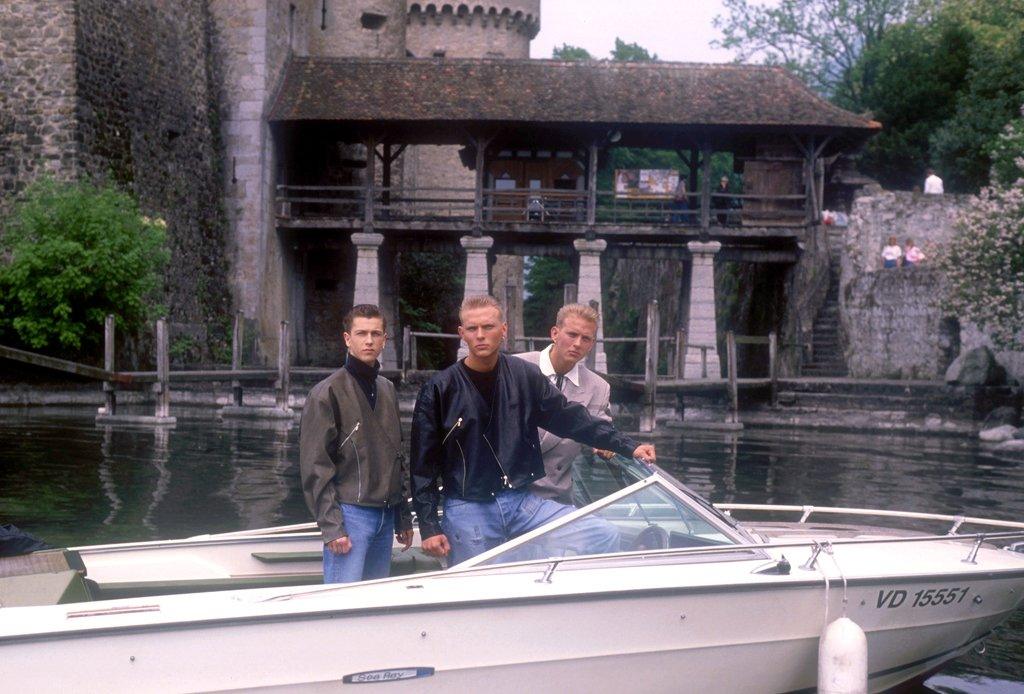
Bros were, for a brief period, the biggest pop band on the planet
Hello, Craig. What has this last week been like for you? Has the phone stopped ringing?
It's been absolutely crazy. A lot of emails, a lot of texts, a lot of phone calls. But in a good way. It's a bit of fun.
Did you know the announcement was coming?
This time, no. We've spoken about it many times over the years, and they totally have my blessing.
If you got the call, would you go up there and do a five-minute bass solo?
Ha ha! You know what? I think they know that it's not something that interests me. That part of my world has moved on.
At the press conference last week, Matt said: "As far as I'm concerned, Bros is Matt and Luke." What did you make of that?
Oh, you know. They're launching a tour as the two of them, so that's fine. There was always two blonde ones and another one. I was the other one.
This is something they've really wanted. It's not something I've wanted. They will do great, they'll put on a fantastic show, and I only wish them well.
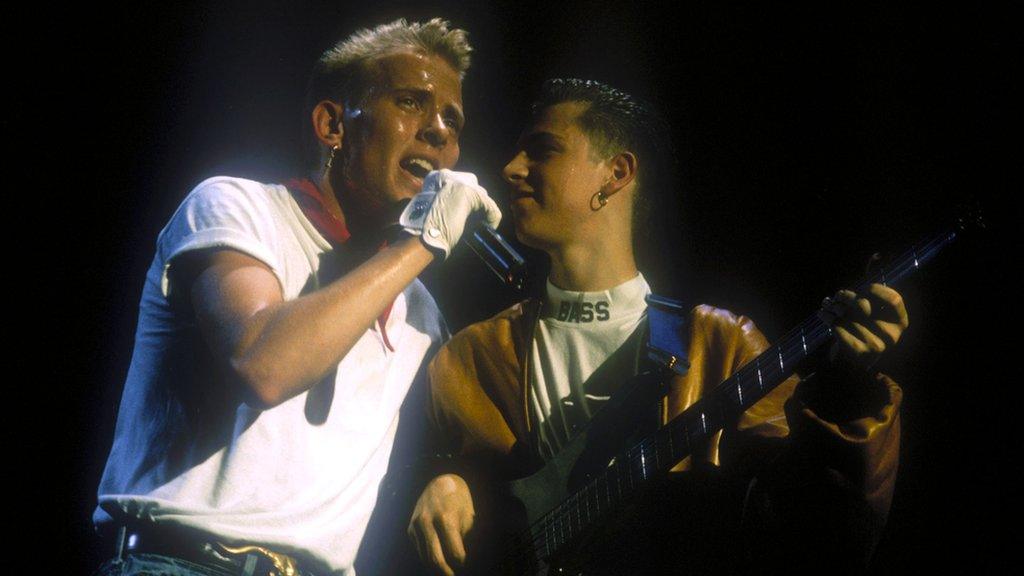
Craig (right) quit the band after a period of illness
I came across a photo of you playing at the Hammersmith Odeon, wearing a white polo neck sweater with the word 'bass' stitched into the collar. Do you remember it?
Do you know what, I think I've still got that! I've definitely got all the jackets - with words like bass, groove, boogie [on them]. They're up in the loft somewhere. They're not hanging up in the cupboard.
Or in a glass display case in the living room…
No, not on display. But I am very proud of the time I was in Bros. I would do it all again.
What's your favourite memory?
I was 17 when it all kicked off. And we travelled the world, being friends, playing in front of huge audiences and that was real fun. But I was never comfortable with fame, in all honesty.
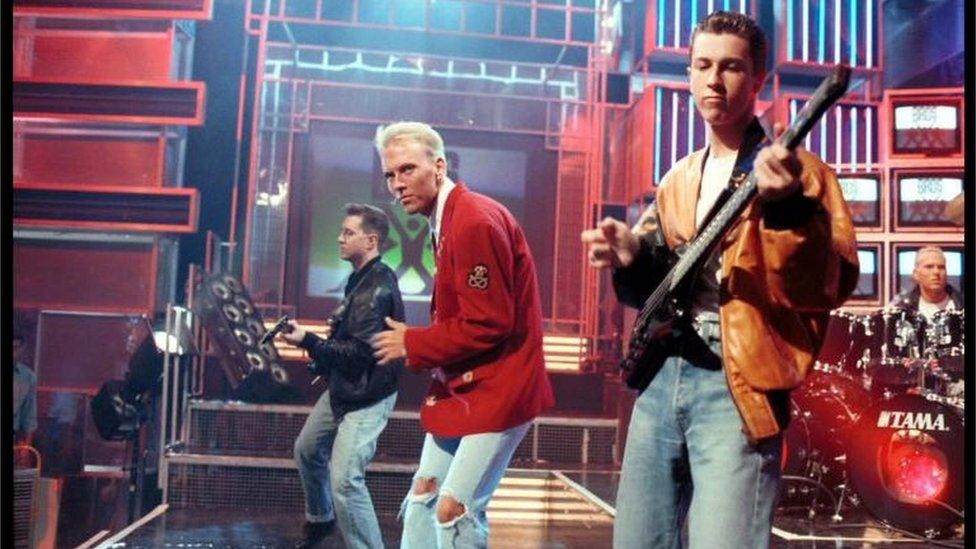
The band's debut album, Push, sold seven million copies
When did you realise it wasn't for you?
Actually, it was pretty simple. I was unwell at the end of 1988. We were on tour in Berlin and I had what they called ME at the time [now known as Chronic Fatigue Syndrome]. And at that point, I was so weak. I had just had enough.
I was going out with Kim Appleby at the time, from Mel and Kim, And Mel was going through lots of treatment for cancer. I remember looking at her and thinking: "What am I doing? This is crazy. This is not worth it."
Is it right you started piano lessons at the Royal School of Music, wearing a disguise to avoid the Brosettes and the paparazzi?
I did! I didn't want to learn about Beethoven and Bach, but I wanted to understand the theory of music, about chords and harmony. That's what propelled me into songwriting and I ended up writing a lot of Kim Appleby's solo stuff.
At the same time you were in court, trying to get out of the contracts you'd signed as part of Bros. Is that what prompted you to move into the business side of things?
Exactly right. I used to go in the lawyers' offices in the morning and we'd go through things piece by piece. That really helped me understand how this business works. How artists get paid, how royalties are split up, how contracts are worded. It was the foundation for pushing me into the business side.
As someone who manages artists now, do you warn them about signing dodgy contracts?
In all honesty, we had a contract that we were advised not to sign but we decided to sign it. We felt it was the right way to propel us forward - and you know what? It was the right decision. We did OK out of it.
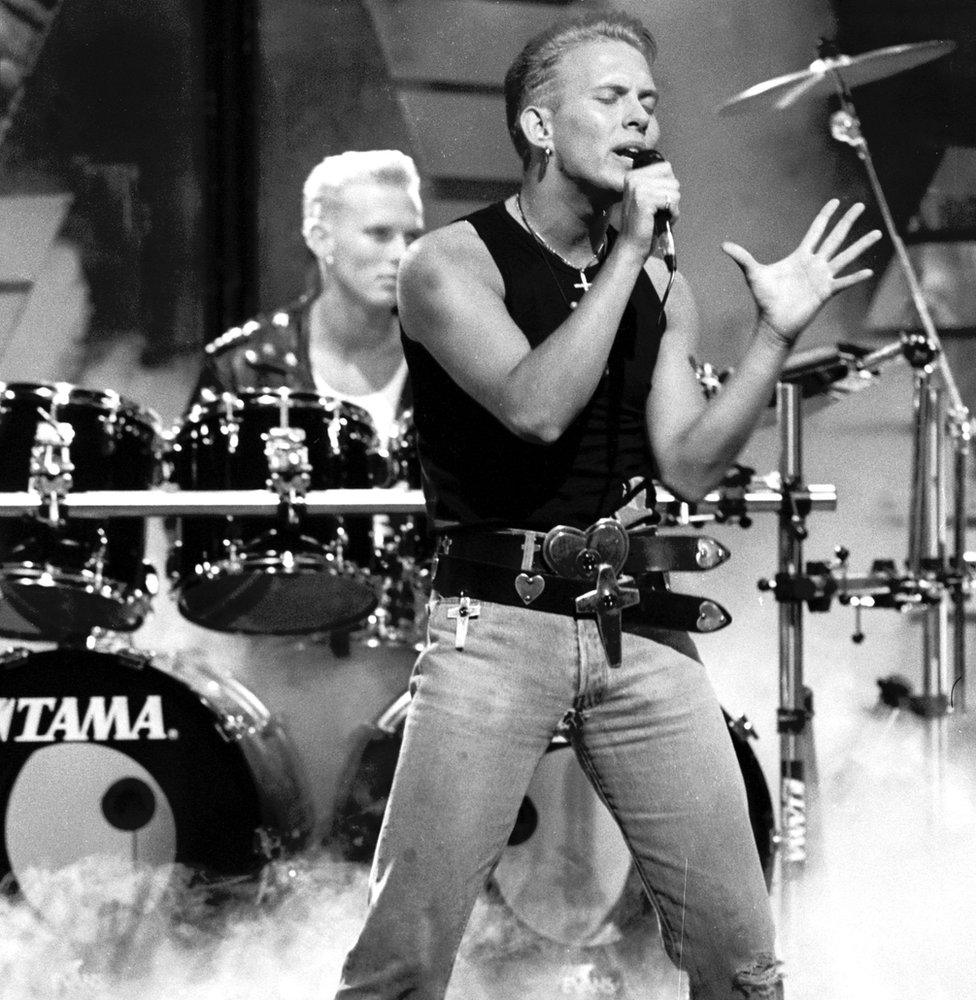
Bros had 11 top 40 hits between 1989 and 1991
You've worked with Tina Turner, Janet Jackson, Robbie Williams, Pink and Joe Cocker. Such big artists can be a handful, so what was your secret?
One of the big things that's been a real benefit for me is the fact I've been out there. I've made records, I've toured, I've made videos, I've sat in a Norwegian hotel room and done 10 interviews one after the other - so I could relate to an awful lot of the artists.
With Robbie, they said: "You're ex-boyband, he's ex-boyband, you guys would be great together." So I used to travel with him a lot.
Some of the shows they were planning, I'd actually done myself. So I could give them first-hand experience. And that has definitely benefitted me.
You signed Pink after her first album and steered her towards becoming a global star. How did that come about?
When we started making the Missundaztood record [in 2001], we all had visions of it being an extension of the first album. She was the visionary one. She was the one who wanted to work with [songwriter] Linda Perry.
One day I went to pick her up in LA and she said: "I was in the studio with Linda Perry last night, and I've got this song. Do you want to hear it?" And she played me Get the Party Started, external. It was just a demo but she could see I loved it. She has incredible instincts.
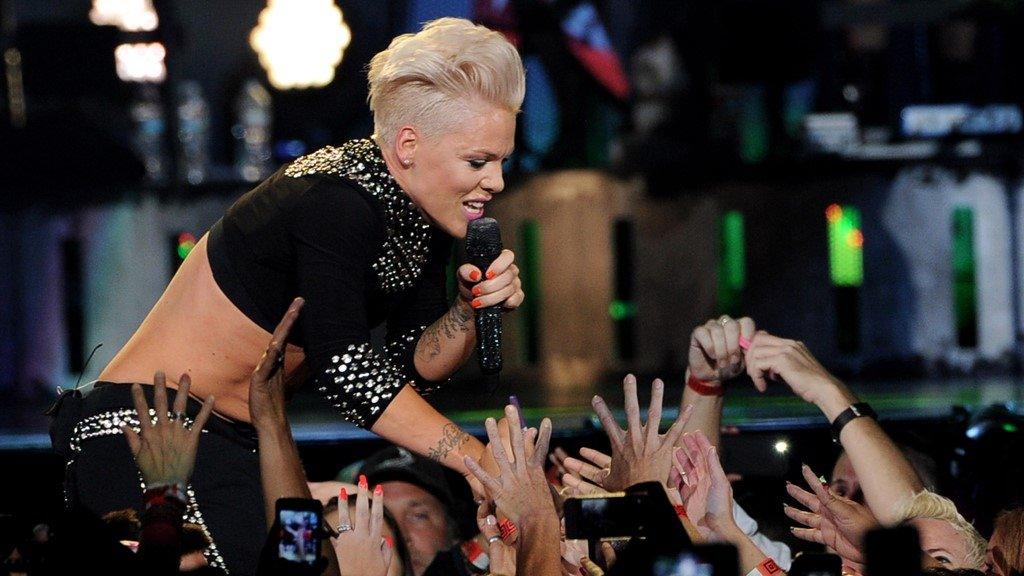
Logan managed Pink for almost a decade
How much of the job is getting out of the artist's way?
It depends. Sometimes you have artists that get in their own way!
But the best artists usually have a vision of where they want to go, and your job is just to keep them on the train tracks.
What's the one bit of advice you give all your artists?
Listen - because none of us know it all. You've got to soak up what's around you.
And then I'm always looking for the little glint in their eye, and I always try to scare them a little bit. I don't mean in a bad way - but you've got to make people understand there is sacrifice.
This business can sound glamorous, but this is hard work. You don't just turn up and strum a guitar a couple of times a week. And they have to understand how hard that's going to be on their personal lives.
You're about to launch your own record label. Given the state of the record industry, is that a wise idea?
I think it's a great time to have an independent label. The key before was always distribution. You'd rely on an awful lot of other people [to get your records into shops]. Now, distribution is pretty straightforward to set up. After that, you have to understand how to build an international strategy for any particular artist.
Cher Lloyd is a great example. We hit a problem in the UK on her debut release and a lot of people would have gone: "Well, that's that then." But we took her to America and we sold two or three million records and built a business for her.
The reason I've set up a new label, a new publishing company and also a TV sync company - for putting music into TV and film - is I want to have lots of routes to the market for my artists. You just have to be nimble. And if you put some knowledge in there, and some skill in there, you can actually do some damage.

Follow us on Twitter @BBCNewsEnts, external, on Instagram at bbcnewsents, external, or if you have a story suggestion email entertainment.news@bbc.co.uk, external.

- Published5 October 2016
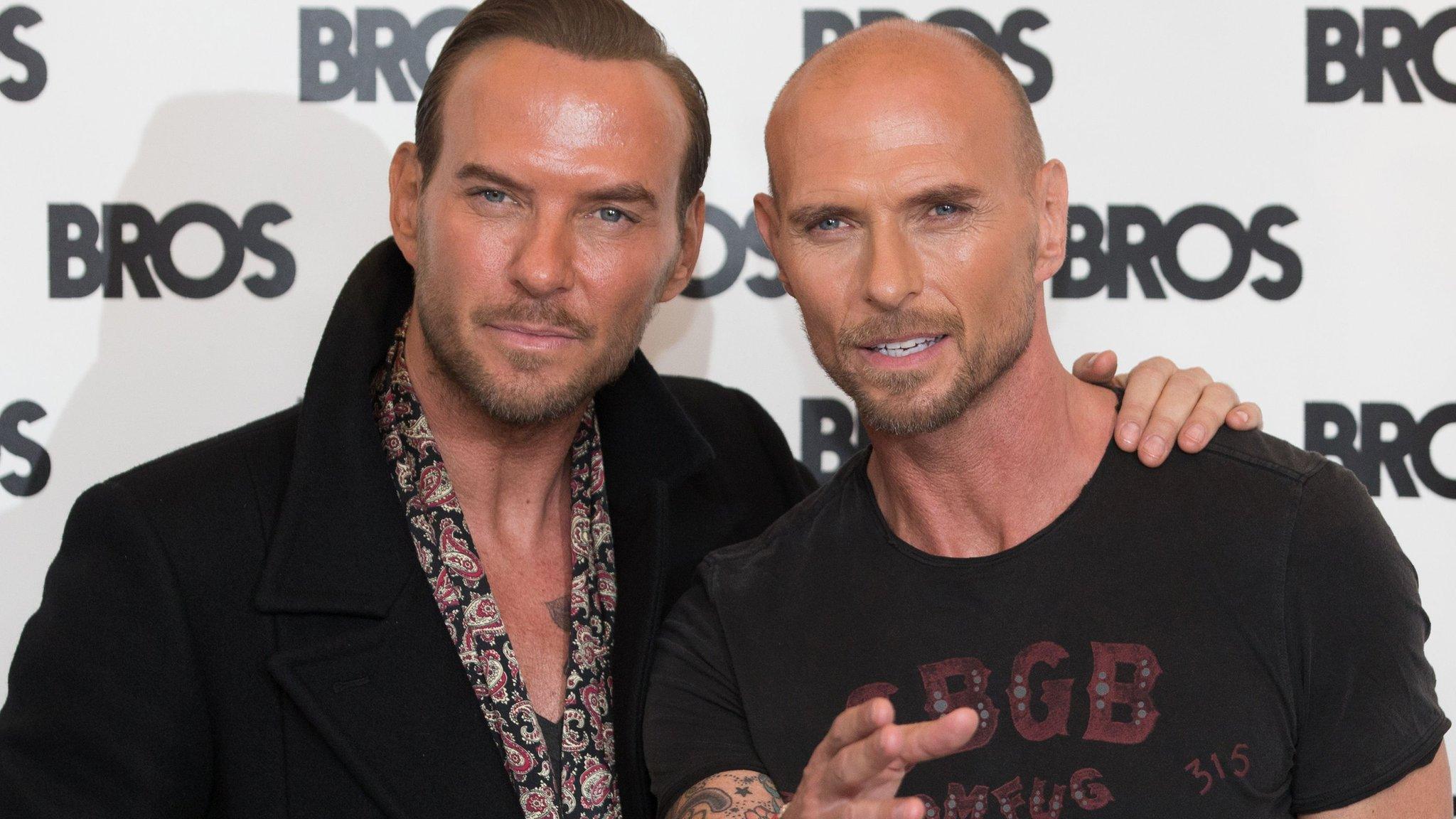
- Published7 October 2016
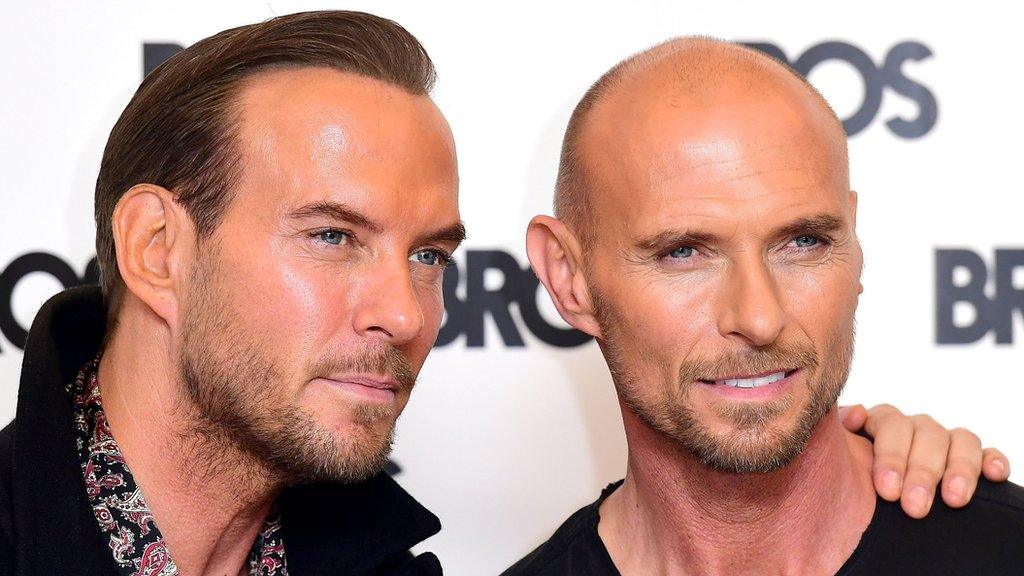
- Published5 October 2016
